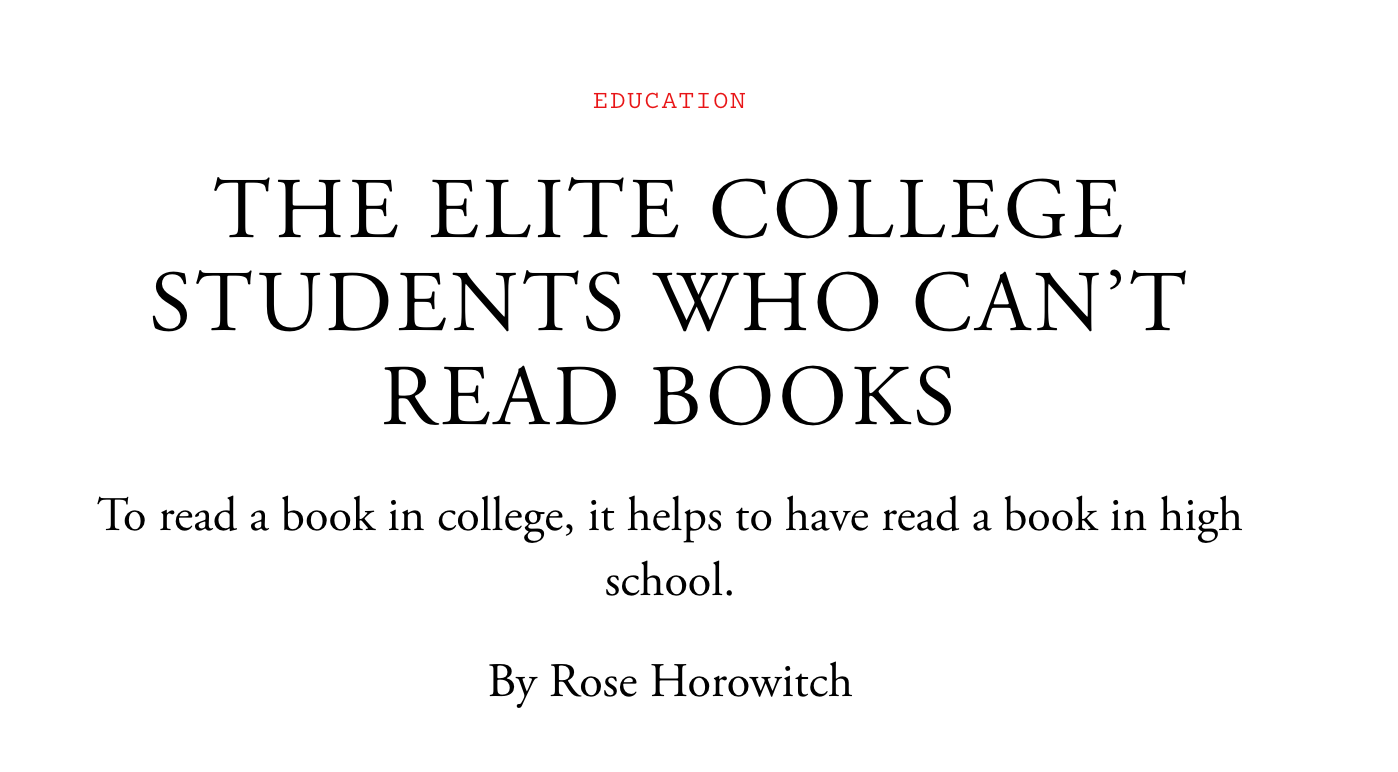I had this realization the other day while scrolling through my Kindle recommendations. Every. Single. Book. was a business or technical title. You know the ones - "The Mountain is You," "The Art of Technical Leadership," "Zero to One," “Good Strategy, Bad Strategy.” I had just finished a non-fiction book, and my algorithm leaned in.
Sound familiar? If you're like most of the readers of this newsletter - tech-savvy, college-educated, cares about your career - your reading list probably looks similar. We're problem solvers by nature, always looking for that edge to level up our skills, and it’s no surprise that the content we consume pushes a lot of non-fiction. We also tend to calculate the value of our time and can’t always rationalize fiction when we could be reading/consuming content that helps us pursue our goals.
And yet, we might be missing out on one of the most powerful tools for innovation by skipping the fiction section. It turns out that reading fiction isn't just an escape from our data-driven world - it's a superpower for innovation.
The growing reading crisis 📉
If working professionals aren’t reading as much fiction these days, surely college students are, right? WRONG! Even elite college students are struggling to read books. They're arriving at top universities, having never finished an entire book in high school! This isn't just an academic problem – it's a creativity crisis waiting to happen.
Why? Because today's quick-hit, excerpt-based reading habits train our brains to skim rather than deeply engage. We're losing the ability to immerse ourselves in complex narratives and alternative perspectives – skills that just so happen to be crucial for innovation.
I imagine this will get worse with AI, which does a lot of thinking for you, making it even easier to be lazy creatively. <shudders>
The innovation connection 🔄
Bringing this back to building great products. It's not just about technical skills or market research. The best innovations come from:
Seeing patterns others miss
Understanding human psychology and behavior
Thinking laterally and making unexpected connections
Having deep empathy for users
Guess what develops all of these capabilities? You got it – reading fiction!
Fiction: Your secret weapon 🗡️
Think of fiction as a simulator for your mind. When you read about characters different from yourself, navigate complex plot twists, or imagine entirely new worlds, you're:
Training your brain to hold multiple perspectives simultaneously
Developing emotional intelligence and empathy
Practicing pattern recognition across disparate ideas
Building mental stamina for complex problem-solving
How it actually works 🧠
When you're deep in a novel, your brain doesn't actually distinguish between reading about an experience and living it. This means you're literally expanding your mental models and reference points for understanding human behavior – crucial for product development!
The neuroscience backs this up. Deep reading (the kind you do with novels, not tweets) activates regions associated with creativity, empathy, and complex problem-solving.
Getting started 🌱
If you haven't read fiction in a while, start small:
Pick genres you naturally enjoy (sci-fi fans, I see you!)
Try audiobooks during your commute
Read for just 15 minutes before bed
Watch BookTok and get inspired
Join online reading communities for accountability
Remember: The goal isn't to become a literature professor. It's to expose your mind to new ways of thinking that will make you a better builder.
What do you think? Are you ready to add fiction to your innovation toolkit? Drop a comment with your favorite novel or what you're currently reading! 📖





